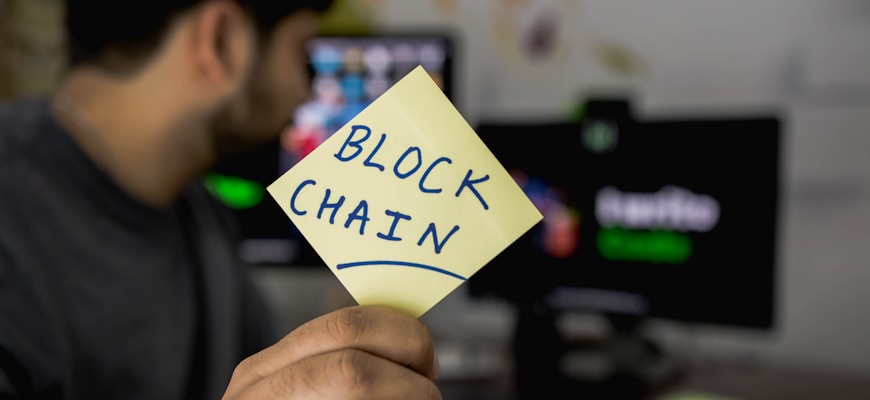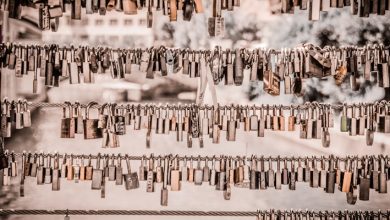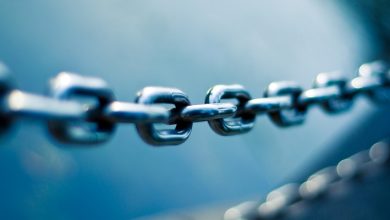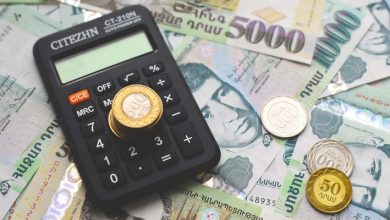The Future of Blockchain Governance: DAOs and Beyond

- Understanding Decentralized Autonomous Organizations (DAOs)
- Challenges and Opportunities in Blockchain Governance
- Exploring the Role of Smart Contracts in Governance
- The Evolution of Governance Models in the Blockchain Space
- Governance Trends to Watch in the World of Blockchain
- The Impact of DAOs on Traditional Governance Structures
Understanding Decentralized Autonomous Organizations (DAOs)
Decentralized Autonomous Organizations (DAOs) are a revolutionary concept in blockchain governance. DAOs are essentially self-governing entities that operate through smart contracts on the blockchain, without the need for centralized control. These organizations are governed by rules encoded in smart contracts, which automatically execute decisions based on the consensus of its members. This eliminates the need for intermediaries and allows for transparent, secure, and efficient decision-making processes.
DAOs have the potential to disrupt traditional organizational structures by enabling decentralized decision-making and resource allocation. Members of a DAO can participate in governance by voting on proposals using tokens or other forms of stake. This ensures that decisions are made collectively and democratically, without the influence of a central authority. DAOs can be used for various purposes, such as managing funds, creating decentralized applications, or governing online communities.
One of the key advantages of DAOs is their transparency and immutability. All transactions and decisions made within a DAO are recorded on the blockchain, making them transparent and auditable by anyone. This helps to prevent fraud and corruption, as well as build trust among members. Additionally, the use of smart contracts ensures that the rules of the organization are enforced automatically, without the need for human intervention.
Despite their potential benefits, DAOs also face challenges and limitations. One of the main concerns is the lack of legal recognition and regulatory clarity surrounding these organizations. This can create uncertainty around their legality and accountability, which may deter potential participants. Additionally, DAOs are vulnerable to security risks, such as hacking and bugs in smart contracts, which can result in the loss of funds or other assets.
Overall, DAOs represent an innovative approach to governance that has the potential to revolutionize the way organizations are structured and operated. By leveraging blockchain technology and smart contracts, DAOs can enable decentralized decision-making, transparency, and efficiency in a wide range of applications. As the technology matures and regulatory frameworks evolve, DAOs are likely to play an increasingly important role in the future of governance and organizational management.
Challenges and Opportunities in Blockchain Governance
Blockchain governance presents numerous challenges and opportunities as decentralized autonomous organizations (DAOs) continue to gain traction in the digital landscape. One of the main challenges is ensuring transparency and accountability in decision-making processes within DAOs. Without clear governance mechanisms in place, there is a risk of power being centralized in the hands of a few individuals, which goes against the core principles of blockchain technology.
Another challenge is the need to establish effective mechanisms for resolving disputes and conflicts within DAOs. As these organizations operate without a centralized authority, it can be difficult to address disagreements or breaches of trust in a fair and efficient manner. Developing robust governance structures that prioritize consensus-building and conflict resolution will be crucial for the long-term success of DAOs.
On the flip side, blockchain governance also presents exciting opportunities for innovation and experimentation. DAOs have the potential to revolutionize traditional business models by enabling new forms of collaboration and decision-making. By leveraging smart contracts and blockchain technology, DAOs can automate processes, reduce transaction costs, and increase transparency in ways that were previously unimaginable.
Furthermore, blockchain governance opens up new possibilities for democratizing access to financial services and resources. Through DAOs, individuals from all walks of life can participate in economic activities, vote on proposals, and shape the future of decentralized finance. This inclusive approach to governance has the potential to empower marginalized communities and drive social change on a global scale.
Exploring the Role of Smart Contracts in Governance
Smart contracts play a crucial role in the governance of blockchain networks, offering a secure and automated way to execute agreements without the need for intermediaries. By using self-executing code stored on the blockchain, smart contracts can help ensure transparency, accountability, and efficiency in decision-making processes.
One of the key advantages of smart contracts in governance is their ability to enforce rules and regulations without the need for manual intervention. This can help prevent fraud, corruption, and human error, leading to a more trustworthy and reliable governance system.
Furthermore, smart contracts can help streamline voting processes, enabling stakeholders to participate in decision-making more easily and securely. By automating the execution of voting results, smart contracts can reduce the risk of manipulation and ensure that outcomes are implemented as intended.
The Evolution of Governance Models in the Blockchain Space
Over time, the blockchain space has witnessed a significant evolution in governance models. Initially, centralized entities held the power to make decisions, which led to concerns around transparency and decentralization. In response to these challenges, decentralized autonomous organizations (DAOs) emerged as a new governance model that leverages blockchain technology to enable transparent, community-driven decision-making processes.
DAOs operate through smart contracts, which are self-executing agreements with the terms of the relationship between parties directly written into code. This technology allows for automated governance processes, eliminating the need for intermediaries and promoting a more democratic approach to decision-making within blockchain networks.
One key advantage of DAOs is their ability to increase transparency and accountability. By storing all governance rules and decisions on the blockchain, stakeholders can easily verify the integrity of the process and hold participants accountable for their actions. This level of transparency helps to build trust among community members and ensures that decisions are made in the best interest of the network as a whole.
Another benefit of DAOs is their scalability. Traditional governance models often struggle to adapt to the rapid growth and changing needs of blockchain networks. DAOs, on the other hand, can easily scale to accommodate a growing number of participants and transactions without sacrificing efficiency or security. This flexibility makes DAOs well-suited for the dynamic and fast-paced nature of the blockchain industry.
In conclusion, the evolution of governance models in the blockchain space has been driven by a desire for increased transparency, accountability, and scalability. DAOs represent a significant step forward in achieving these goals, offering a new paradigm for decentralized decision-making that empowers stakeholders and promotes the long-term sustainability of blockchain networks. As the technology continues to mature, we can expect to see further innovations in governance models that push the boundaries of what is possible in the blockchain space.
Governance Trends to Watch in the World of Blockchain
As blockchain technology continues to evolve, governance trends are emerging that will shape the future of decentralized autonomous organizations (DAOs) and beyond. These trends are crucial for ensuring the effective management and decision-making processes within blockchain networks.
One key trend to watch is the rise of on-chain governance mechanisms, which allow network participants to vote on proposals directly through smart contracts. This approach enhances transparency and decentralization, as decisions are made collectively by stakeholders rather than centralized entities.
Another important trend is the development of decentralized governance frameworks that enable the creation of self-executing smart contracts. These contracts automatically enforce predefined rules and protocols, reducing the need for human intervention and mitigating the risk of manipulation or fraud.
Furthermore, the integration of decentralized oracles in blockchain governance is gaining traction. Oracles serve as bridges between on-chain and off-chain data sources, providing reliable information for decision-making processes. This integration enhances the security and reliability of governance mechanisms.
Overall, these governance trends are reshaping the landscape of blockchain technology, paving the way for more efficient, transparent, and democratic systems. By staying informed and adapting to these trends, blockchain projects can position themselves for long-term success in the ever-evolving digital economy.
The Impact of DAOs on Traditional Governance Structures
Decentralized Autonomous Organizations (DAOs) have the potential to revolutionize traditional governance structures by introducing a new way of making decisions and managing resources. DAOs are built on blockchain technology, which enables transparent and secure transactions without the need for intermediaries.
One of the key impacts of DAOs on traditional governance structures is the elimination of centralized authority figures. Instead of relying on a single leader or board of directors to make decisions, DAOs operate through smart contracts that are executed automatically when certain conditions are met. This allows for more democratic decision-making processes and reduces the risk of corruption or manipulation.
Furthermore, DAOs can increase efficiency and reduce costs by automating various governance functions. For example, voting on proposals, allocating funds, and enforcing rules can all be done through smart contracts, eliminating the need for manual intervention and streamlining the decision-making process.
While DAOs offer many benefits, they also pose challenges to traditional governance structures. For instance, the lack of human oversight in DAOs can lead to unintended consequences or vulnerabilities in the code. Additionally, the decentralized nature of DAOs can make it difficult to hold individuals accountable for their actions.
Overall, the impact of DAOs on traditional governance structures is still unfolding. As more organizations experiment with DAOs and explore their potential, it is likely that we will see a shift towards more decentralized and transparent governance models in the future.



